#jaqueline jordan
Photo


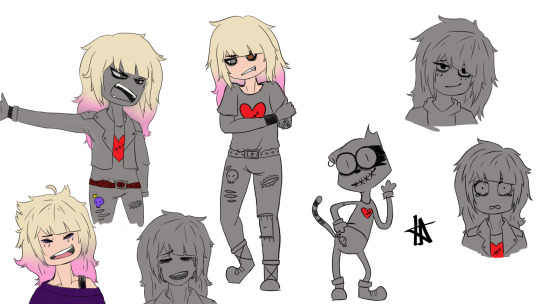




Back when i was building my webcomic <Status....>
I haven’t given up on it, but i also havent made as much progress since i built it back in 2017, 5 years ago
I have plans to ofc but i just havent given it the love and time recently
0 notes
Text
Propaganda/Explanation below the cut:
Mickey and Rose considered themselves broken up before the book Winner Takes All:
"Mickey was feeling slightly stunned. It was one thing to get a phone call from your ex-girlfriend, it was quite another to get a call from her new man using her vocal cords to speak to you, or something, and it was yet another thing entirely for him/her to casually drop into the conversation that she’s – he’s – calling from another planet, and needs your help to save the world again." - Winner Takes All by Jaqueline Rayner, page 135 (emphasis mine)
Released two weeks before Boom Town aired, the NSA Winner Takes All takes place before Jack joins Team TARDIS. In the novel, Mickey mentally refers to Rose as his ex - and it's a bit more fun for me if I let that take priority over them seeming to still be together in Boom Town or whatever.
No Hot Ashes >>>>>>>>>>>>>>>>>>>>>>>>>>>>>>>>>:
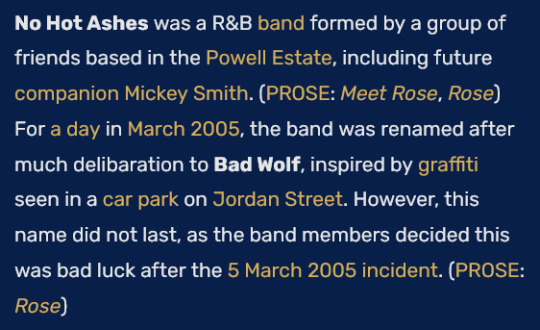
[Image description: A screenshot that read "No Hot Ashes was a R&B band formed by a group of friends based in the Powell Estate, including future companion Mickey Smith. (PROSE: Meet Rose, Rose) For a day in March 2005, the band was renamed after much delibaration to Bad Wolf, inspired by graffiti seen in a car park on Jordan Street. However, this name did not last, as the band members decided this was bad luck after the 5 March 2005 incident. (PROSE: Rose)." End image description.]
I just think they're neat!!!! Every time Sally, Patrice, and/or Mook show up in the EU it's a good time. I love them, your honor.
#kasteraxilkemeryapheshexerindaikyat opinion poll round 1#kasteraxilkemeryapheshexerindaikyat opinion poll#kasteraxilkemeryapheshexerindaikyat.pdf#poll
3 notes
·
View notes
Text
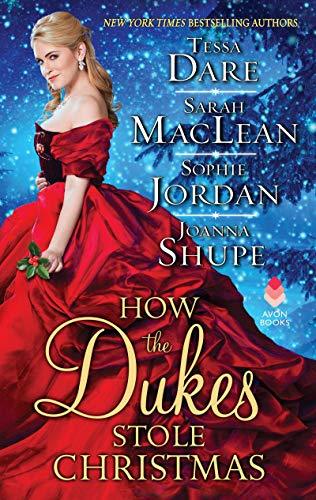
How the Dukes Stole Christmas. By Tessa Dare, Sarah MacLean, Sophie Jordan, and Joanna Shupe. Avon, 2019.
Rating: 3.5/5 stars
Genre: historical romance, anthology
Part of a Series? No
Summary: From the ballrooms of London, to abandoned Scottish castles, to the snowy streets of Gilded Age New York, four bestselling authors whip up unforgettable Christmas romance.
***Full review under the cut.***
Content Warnings: graphic sexual content
Overview: My foray into holiday romance continues with this collection of 4 novellas written by some heavy-hitters in the romance world. Because this is an anthology, my review will be structured a little different than normal.
"Meet Me in Mayfair” by Tessa Dare
"Meet Me in Mayfair" follows Louisa Ward, the eldest daughter of the Ward family. The Wards have been living in their London home for more than a decade after borrowing money from the Duke of Thorndale. Their father's friendship with the duke has meant that the debt has been forgiven, but when the Duke dies, the new Duke calls in the debt (plus interest). To keep their home past New Year's, Louisa must marry a wealthy gentleman, but when she stumbles into that very Duke - James - at a Christmas ball and he takes a liking to her, things get... complicated, to say the least.
What I liked about this story was the appropriate pace and scope. Dare didn't go for a whirlwind romance with improbable outcomes, but kept the focus on the scope of one night. As a result, this story felt more emotionally and mentally intimate, and the small, "mundane" moments felt heavier and more important than bigger shows of love or attraction. The only thing I didn't like was the epilogue; I felt like the story ended in a natural place at the close of the last chapter, and the epilogue felt inserted in order to bring some hot, sexy times to a story that frankly didn't really need it. Still, this story was a pleasant read with a couple that had a relationship built on mutual respect, and I enjoyed the experience.
"The Duke of Christmas Present” by Sarah MacLean
This story follows Eben, Duke of Allryd, who is awakened in the middle of the night on Christmas Eve by Jaqueline "Jack" Mosby. Jack is Eben's childhood friend (and later lover) who left him and disappeared for 12 years; now, she has come back for a mere 2 days - to spend Christnas with him before she leaves for Scotland. Eben is too hurt to want anything to do with her, but when a massive snowstorm prevents either of them from leaving the house, they confront must their pasts and examine their feelings towards one another.
This story was a very angsty romance that didn't go too far into sad boy territory. The 12 year absence meant that the angst felt well-earned, and I liked that MacLean didn't push it aside too readily. I also think that MacLean did a good job flashing between past and present, which helped give depth to the couple's past and emotions, and Eben's arc had some nice development. The side characters were also pretty fun, and I don't think I can identify much that I thought could be improved.
"Heiress Alone" by Sophie Jordan
This story follows Annis, the second eldest daughter of the Ballister family. When her parents and 4 boisterous sisters accidentally leave her behind in the Scottish Highlands, Annis is left to spend the winter in the company of her two elderly servants and her neighbor - the surly Duke of Sinclair.
This is my first time reading a Sophie Jordan story, and unfortunately, it wasn't to my taste. For one thing, the Duke embodied all the stereotypes I dislike most about Highlander romance heroes - bad Scots dialect, random antagonism with the English, and a bossy, grumpy demeanor that made me wonder why the heroine found him attractive. The romance also didn't feel very organic, and it was based more on physical attraction than emotional intimacy. If you like old school romances where the hero and heroine are thrown together in scenarios where sexual tension is palpable, you might like this story. But personally, I found it dull.
"Christmas in Central Park" by Joanna Shupe
Rose Walker is a popular advice columnist for a New York City newspaper, posing as a wealthy married woman and dispensing tips for cleaning, baking, decorating, and all sorts of household improvements. But when the owner of the paper - Duke Havermeyer - insists that she host a Christmas party at her home to charm the paper's board of trustees, she must pull off the ultimate deception in order to keep her job.
I'm off mixed opinions regarding this story. I really enjoyed the premise, and I think Shupe did a good job setting up the stakes. However, I also think this story would have worked better as a full length novel. There were a lot of themes and emotions to unpack, and while the pace wasn't bad, I also felt like I needed more time to process all that was going on. The extra time would have also allowed Shupe to show rather than tell a bit more, but even so, this was an interesting story and I liked the ideas she was playing with.
TL;DR: In my opinion, three out of the four novellas make this collection a worthwhile read. While I could nitpick each of the stories, they are light and enjoyable enough for the holidays, and I would recommend this set to any historical romance reader.
3 notes
·
View notes
Text
˚ ༘ ೀ⋆。˚ ERIS NOTT — next generation era
family: daughter of theodore nott and daphne greengrass; twin of ares nott and little sister of nicolas nott
ARES NOTT — he/him, slytherin
NICOLAS NOTT — he/him, slytherin | friend group: ross warrington, marcus & rafael zabini, troy goyle, montgomery vaisey
hogwarts house: slytherin
love interest: james sirius potter (he/him, gryffindor) — best friends to lovers
friend group: ares nott, ethan mclaggen, freya parkinson, nathaniel montague
꒷꒦꒷꒦꒷꒦꒷꒦꒷꒦꒷꒦꒷꒦꒷꒦꒷꒦꒷꒦꒷꒦꒷꒦꒷꒦꒷꒦꒷꒦꒷꒦꒷꒦꒷꒦꒷꒦꒷꒦꒷꒦꒷꒦꒷
— OTHER PEOPLE
* adelaide carrow (slytherin)
albus severus potter (slytherin)
alice longbottom (ravenclaw)
* anastasia carmichael (hufflepuff)
* apollo augustus malfoy (slytherin)
* ares nott (slytherin)
* ariadne elizabeth pucey (ravenclaw)
* caterina wood (hufflepuff)
* charlotte juniper (ravenclaw)
craig bowker jr (slytherin)
* dane rookwood (slytherin)
dominique weasley (ravenclaw)
* ethan mclaggen (slytherin)
frank longbottom ii (hufflepuff)
fred weasley ii (gryffindor)
* freya parkinson (slytherin)
* henrico wood (gryffindor)
hugo granger-weasley (gryffindor)
james sirius potter (gryffindor)
* jaqueline towler (ravenclaw)
* jeremy macdougal (ravenclaw)
* jordan adam macmillan (gryffindor)
* julian flint (hufflepuff)
karl jenkins (ravenclaw)
* katelyn peakes (gryffindor)
* keith calahan (ravenclaw)
* leo finch-fletchley (slytherin)
lily luna potter (gryffindor)
lorcan scamander (hufflepuff)
louis charles weasley (hufflepuff)
lucy minerva weasley (gryffindor)
lysander scamander (hufflepuff)
* malyna brown-patil (ravenclaw)
* marcus lovegood-zabini (ravenclaw)
* martha goldstein (ravenclaw)
* mavis flint (slytherin)
* michael clearwater-burrow (ravenclaw)
molly weasley ii (gryffindor)
* montgomery vaisey (slytherin)
* nathaniel montague (slytherin)
* nicolas nott (slytherin)
polly chapman (gryffindor)
* rafael lovegood-zabini (slytherin)
* raquelle macavoy-preece (gryffindor)
rose granger-weasley (gryffindor)
* ross warrington (slytherin)
* rowan finch-fletchley (gryffindor)
roxanne weasley (gryffindor)
* samuel sloper (slytherin)
scorpius hyperion malfoy (slytherin)
teddy remus lupin (hufflepuff)
* tobias chang-dooley (slytherin)
* tristan jordan (hufflepuff)
* troy goyle (slytherin)
victoire gabriella weasley (ravenclaw)
* xander thomas-finnigan (ravenclaw)
yann fredericks (gryffindor)
* yvonne crabbe (slytherin)
0 notes
Note
Good morning! If possible could you please suggest some black female fcs who have sort of a rugged western vibe? Where the black cowgirls at 😭😭😭
Some aren't western roles but could work:
Regina King (Where They Fall, Watchmen) African-American - Z*zie is also in Where They Fall but her casting based off an actual person was incredibly colourist and fatphobic, the director also excused this so please be cautious!
DeWanda Wise (The Harder They Fall) African-American.
Tamara Tunie (Cowboy Bebop) African-American, Lenape, possibly European.
Erykah Badu (They Die by Dawn) African-American and Cameroonian.
Monica Calhoun (Gang of Roses) African-American.
Lil' Kim (Gang of Roses) African-American.
LisaRaye McCoy (Gang of Roses) African-American.
Jaqueline Fleming (Hell on the Border) Afro Danish.
Dana Gourrier (The Hateful Eight) Louisiana Creole [African, French].
Maisie Richardson-Sellers (Legends of Tomorrow) Afro-Guyanese / English - queer.
Kylie Bunbury (Big Sky) Afro-Guyanese / Swedish, as well as Polish, English, and German.
Danielle Moné Truitt (Deputy) African-American.
Lauren Ridloff (The Walking Dead) African-American / Mexican - is deaf.
Danai Gurira (The Walking Dead) Shona Zimbabwean.
Sonequa Martin-Green (The Walking Dead) African-American.
Kellita Smith (Z Nation) African-American.
Madeleine Mantock (Into the Badlands) English, Afro-Jamaican.
Vaneza Oliveira (3%) Afro Brazilian.
Zoë Robins (The Wheel of Time) Nigerian.
Habiba Ummi Mohammed (Amina) Nigerian.
Jessica Parker Kennedy (Black Sails) Afro Canadian, Italian, Russian.
Chelsea Harris (Snowpiercer) African-American.
More women who could rock that aesthetic:
Angela Bassett (1958) African-American.
Rutina Wesley (1978) African-American.
Lisa Berry (1979) Black Canadian.
Lesley-Ann Brandt (1981) Black South African [English, East Indian, German, Spanish, Dutch, Khoisan, Ashkenazi Jewish].
Lupita Nyong'o (1983) Luo Kenyan.
Issa Rae (1985) Senegalese / African-American, Creole [African, French, distant Spanish], distant French-Haitian.
Nicole Beharie (1985) Afro-Jamaican, African-American.
Nafessa Williams (1985) African-American.
Janelle Monáe (1985) African-American - pansexual and bisexual.
Jurnee Smollett (1986) African-American, possibly other / Ashkenazi Jewish - Lovecraft Country.
Lashana Lynch (1987) Afro-Jamaican.
Michaela Coel (1987) Ghanaian - aromantic.
Danielle Brooks (1989) African-American.
Hannah John-Kamen (1989) Nigerian / Norwegian.
Damaris Lewis (1990) Afro-Kittian.
Jordan Alexander (1993) African-American, German, Irish.
Moonbear (1994) African-American.
Aurora Perrineau (1994) African-American, Afro-Haitian / English, Irish, French, German.
Kehlani (1995) Filipino, African-American, Blackfoot, Cherokee, Choctaw, Mexican, French, Spanish, Scottish, English, German, Irish, Welsh, Cornish - non-binary womxn - she/they - lesbian.
Credit to @nicolemaiines for some of these suggestions!
17 notes
·
View notes
Note
33, 6 ft 3, male. I have a debilitating lice issue but it’s okay because they don’t really bother me that much. I have to be in charge of a lot of people for my job, and I don’t talk to many people as a result, but I have this one good friend who basically hangs around me 24/7. Currently trying to track down a daughter I didn’t know I had??? And some of my employees are really getting on my nerves, might have to get rid of them. I’ll let you know how it goes.
ALRIGHT IS THIS JACK, JAQUELINE, SHANNON, ROCKET, SALAD, JORDAN, OR LEO
35 notes
·
View notes
Text
● A
Alyssa Sutherland.
Alexander Ludwig.
Alfie Allen.
Arnas Fedaraviciua
● B
Ben Barnes
Bradley James
Brenton Thwaites
Ben Schnetzer
● C
Charlize Theron.
Christian Hilborg.
Chris Hemsworth
Chris Pine
Caitlin Stacey
● D
Daisy Ridley.
Daniel Sharman
● E
Estella Daniels.
Elle Fanning.
● F
Finn Jones
● G
Gemma Chan
Gregg Chillin.
Gong Li
Gugu Mbatha-Raw.
● H
Holliday Grainger.
Hritrik Roshan.
Hera Hilmar
● I
● J
Jaqueline Fernandez.
Jude Law.
Jason Momoa.
Jamie Campbell Bower
Joey Batey.
Jessica Parker-Kennedy.
Jordan Patrick Smith.
Ju Jingyi.
● K
Katrina Kaif.
Kristofer Hivju.
Katheryn Winnick.
● L
Lena Headey.
Lotte Verbeek
Luke Evans
● M
Mahesh Jadu
Matthew Macfadyen
Medalion Rahimi
Matteo Martari
● N
Naomi Scott.
● Ñ
● O
● P
Peter Mensah.
● Q
● R
Renee Zellweger.
● S
Sophie Turner
Sonam Kapoor
Sam Heughan.
Synnøve Karlsen
● T
Timothy Omundson.
Tom Wlaschiha.
Tom Riley
Toby Regbo
● U
● V
● W
● X
● Y
● Z
Zethu Diomo.
Zhu Zhu
Zhang Bin Bin.
2 notes
·
View notes
Photo
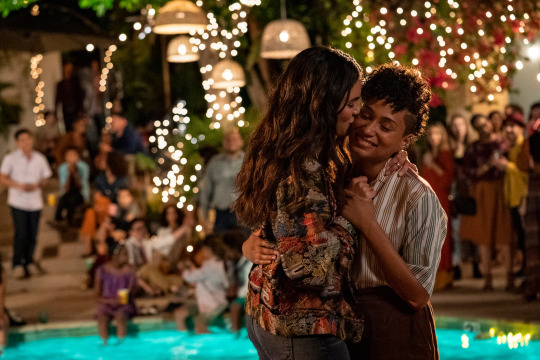
'The L Word: Generation Q' Review: One Small Step for Queer-kind - Rolling Stone
When The L Word first hit the airwaves in 2004, there was nothing else like it on TV. It was a show that didn’t just prominently feature queer women — it put them front and center, earning itself a devoted fanbase who were seeing themselves writ large on the small screen for the first time ever.
Well, something like themselves, at least. The characters on the Showtime series inhabited a soap-operatic bubble of West Hollywood full of big romances and bigger betrayals. They were almost entirely white, affluent, and oriented on the femme end of the lesbian spectrum. And the show could be ham-fisted and sometimes downright offensive in its portrayal of transgender and bisexual characters. Still, for countless queer and lesbian women coming of age in the aughts and beyond, Ilene Chaiken’s groundbreaking drama was a major touchstone.
In the 10 years since the series’ finale episode, a great deal has changed for the LGBTQ world, from increased mainstream visibility to deeper conversations within the community itself. Enter The L Word: Generation Q, a reboot that picks up where the first series left off, and makes a valiant effort to atone for some of the original’s shortfalls. Helmed by new showrunner Marja Lewis-Ryan (though Chaiken is still involved as an executive producer), Generation Q catches up with three of the main players from the original series while also introducing a handful of new twentysomething characters.
The members of the old gang are now middle-aged and established in life, but as romantically fraught as ever. Bette (Jennifer Beals) is running to be the first lesbian mayor of Los Angeles while raising her teenage daughter Angie (Jordan Hull) and dealing with an infidelity scandal that threatens to topple her campaign; Alice (Leisha Haley) is now the host of an Ellen-esque talk show and struggling to connect with her girlfriend Natalie’s (Stephanie Allynne) ex-wife Gigi (Sepideh Moafi of The Deuce) and their two kids; and Shane (Katherine Moennig), the original series’ resident heartbreaker, has returned to L.A. after a long time away while in the throes of a wrenching divorce.
Then there’s the proverbial Generation Q, which, true to the new series’ stated purpose, represents a vastly more diverse array of human beings. Among the millennial set are Dominican-American Sophie (Rosanny Zayas), who works behind the scenes on Alice’s talk show; her Chilean-Iranian girlfriend, Dani (Arienne Mandi), who does PR for her father’s pharmaceutical company; and their roommate Micah (Leo Sheng), a Chinese-American trans man who’s navigating the dating app scene. (Lizzo’s “Better in Color,” fittingly, plays over the pilot’s opening titles.) Finley (Jaqueline Toboni), a production assistant on Alice, appears to be the lone white person in the group.
As in the first series, the characters populate an insular micro-L.A. where everyone is connected via an elaborate web of coworkers, roommates, lovers, and hookups. Shane becomes Finley’s ad hoc landlord and reluctant mentor, and Dani quickly gets involved in Bette’s mayoral campaign. When the larger world does encroach, it’s often in a threatening way: male television execs who want to make Alice’s show more easily digestible for a mainstream (read: straight) audience; Dani’s father (Carlos Leal), who views his daughter’s same-sex relationship as merely a phase; the angry husband of Bette’s paramour, who publicly confronts the candidate at a press conference.
Generation Q packs a whole lot — probably too much — into its first three episodes, touching on a laundry list of issues ranging from the interpersonal (divorce, parenting, online dating) to big-picture talking points (religion, teen homelessness, the opioid epidemic). And particularly in the overstuffed pilot, the show can take on the artificial sheen of an after-school special, dutifully name-checking every capital-I Issue it can, and virtue-signaling to an exhaustive degree. (In one particularly awkward moment, the line “Rings are just a symbol of the patriarchy!” gets blurted out in the middle of a marriage proposal.) Part of what made the original series fun was its unabashed soapiness; and, at least in its early episodes, Generation Q gets bogged down in its efforts to make sure it’s saying all the right things.
But if that all sounds like way too much, consider that Lewis-Ryan’s series carries a whole lot of weight on its shoulders. Because, even though a lot more TV shows now feature queer female characters than was the case a decade ago, series in which their experiences, or indeed the community itself, are centered are still rare. Still, in the age of shows like Vida, Pose, and Orange Is the New Black, to name a few, Generation Q is less alone in the television landscape than its predecessor was.
And there’s plenty it gets right. Generation Q features a lot of aspects of the queer female experience that The L Word shied away from. For one, physical realities like armpit hair and period blood make their way into sex scenes in a way they never did in the original series. What’s more, people of color and transgender characters (played by actual trans people) are notably centered in a way that feels organic to contemporary L.A. And even though some of the dialogue is stilted, there’s usually enough chemistry, both platonic and romantic, to make up for the script’s shortfalls. (In a particularly sweet scene in which Micah is dealing with the fallout of dating drama, Sophie tells him, “It’s OK to be hurt, and it’s OK to fuck somebody.”)
Perhaps the show’s most interesting and relevant thread concerns a onetime gay bar that has since become a sports bar, to L.A. expat Shane’s dismay. She points out the total lack of lesbian bars in the city, which is true to life; L.A. currently has zero lesbian bars, an alarming fact brought to attention by a pop-up cocktail spot a few months ago. A side effect of society becoming increasingly accepting of LGBTQ people is that dedicated queer spaces are vanishing, particularly those for women — an issue explored in Alexis Clements’s recent documentary, All We’ve Got.
The story of reclaiming the lesbian bar is a potent metaphor for the world The L Word finds itself in today. The struggles in Generation Q are different than the struggles in the original. No one is in the closet, same-sex couples can legally get married in the United States (they had to travel to Canada in the old series), and the characters are all well-versed in the language of the LGBTQ spectrum. But in an age of greater integration and acceptance, there’s still a lot to be said for carving out an exclusive space on television for queer women and trans people. Generation Q might not necessarily be breaking new ground, but it is staking a claim.
#the l word#generation q#the l word generation q#l word#lgbtq#jenna scherer#rolling stone#television#tv review#lesbians#queer women
5 notes
·
View notes
Text
I was tagged by the fabulous @capsgrantrogers And @zitathehun . Thank you 💜💜
1. Name/Alias: Heather
2. Birthday: July 14th
3. Zodiac sign: cancer
4. Height: 5’5
5. Hobbies: I love reading, cooking, going to the cinema watching Netflix with friends and playing the violin.
6. Favorite colors: green and purple
7. Favorite books: Harry Potter by J.K. Rowling, Wheel of time by Robert Jordan, kushiels legacy by Jaqueline Carey and Dune by Frank Herbert.
8. Favorite video games: Final fantasy vii
9. Last song I listened to: Instant Crush by Daft Punk
10. Last film I watched: IT chapter 2
11. Inspiration for muse: Sebastian stan and timothee chalamet
12. Dream job: Librarian
13. Meaning behind your url: It was a spelling mistake which I decided to stick with 😊
14. Top 3 ships: Stucky, Drarry and Methur
15. Lipstick or chapstick: lipstick
16. Currently reading: does A03 count.
Tagging but please only do if you want to don't feel obligated too , @rubyrosettared , @fasole-dulce ,@erikisright , @favorite-colors ,@st-eve-barnes ,@whatitis-inside , @fuzzysebastianstan , and @bucky-is-my-precious
9 notes
·
View notes
Photo




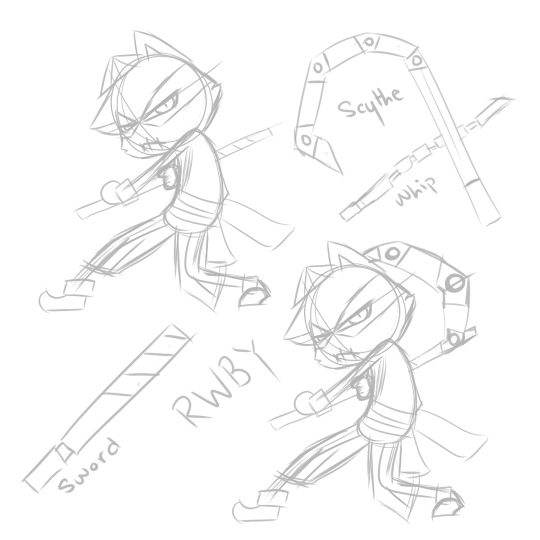
random shitty doodles i did to get used to Clip Studio Paint
#mikosketch#doodle#doodlysketch#dabi#cynder quill#jaqueline jordan#reflect#status...#shinsou hitoshi#bnha bakugo katsuki#karaccoon
0 notes
Note
Why fantasy world (movie, book, video game, etc) would you want to live in? And what would you do in your first week there?
Did you just... are you really asking... oh my gods thank you for letting the nerd out!
My first impulse is to claim my place in Rand Land (Eye of the World Series by Robert Jordan). My favorite adventure into rpg was as a Domani Wilder...
But... now that I’ve scared off most of my followers 😆 I think I would want to live in the world of Jaqueline Carey’s Kushiel series. I would love to be trained as a skilled Courtesan, to use my mind and body to influence rulers... To discover that I gain pleasure from pain... to go to a royal ball on Melisande’s leash...

9 notes
·
View notes
Text
Names From The Top 500: J
Nearly all names appearing in United States or England / Wales top baby names for any year between 1996-2016, the top 500 represents greater than 50 percent of all names given in a year and the top 100 represents greater than 30 percent
Appeared in Top 500 / Top 250 / Top 100 / Top 50
Feminine, exclusively appeared in girls top 500
Jaclyn / Jacqueline / Jacquelyn / Jaqueline
Jada / Jayda
Jade / Jayde
Jadyn
Janae
Jane
Janelle
Janet
Jasmin / Jasmine / Jazmin / Jazmine
Jaya
Jayla
Jazlyn
Jemma
Jenna
Jennifer / Jenny
Jessica
Jillian
Jimena
Joanna / Joanne / Johanna
Jocelyn / Joselyn
Jodi / Jodie / Jody
Jordyn
Jorja
Josephine
Josie
Journey
Joy
Julia / Juliana / Julianna / Julianne
Julie
Juliet / Juliette
June
Juniper
Justine
Masculine, exclusively appeared in boys top 500
Jack / Jacques
Jace / Jase / Jayce
Jackson / Jaxon / Jaxson
Jacob / Jakob / Jakub
Jadon / Jaydon
Jago
Jai
Jaime
Jake
Jalen / Jaylen / Jaylon
Jamal
James / Jameson / Jamison
Jan
Jaquan
Jared / Jarod / Jarred / Jarrod
Jaron
Jarrett
Jarvis
Jason / Jayceon / Jayson
Jasper
Javier
Jax
Jay
Jed
Jeffrey / Jeffery
Jeremiah
Jeremy
Jermaine
Jerome
Jerry
Jesse
Jesus
Jett
Jimmy
Joaquin
Joe / Joey
Joel
Johan / John / Johnny / Jon / Jonny / Juan
Johnathan / Johnathon / Jonathan / Jonathon
Jonah
Jonas
Jordon
Jorge
Jose / Josef / Joseph
Josh / Joshua / Josue
Josiah
Judah / Jude
Julian / Julio / Julius
Junaid
Justin
Neutral, appeared in top 500 for baby girls and baby boys, possibly not in the same year or country so popularity is not marked
Jaden / Jaiden / Jayden
Jamie
Jaylin
Jessie
Jordan
Justice
6 notes
·
View notes
Text
Review of How The Dukes Stole Christmas
What a delightful time I've had with four well known, well loved, authors. How The Dukes Stole Christmas: A Holiday Romance Anthology is a trip across time periods with a special connection for all four stories. Tessa Dare, Sarah MacLean, Sophie Jordan, and Joanna Shupe banded together for one of my favorites, a holiday collection. I'm a sucker for an intertwined story and multiples are always a treat. I love finding out how the authors have managed to keep the storyline flowing. In these interlaced stories the authors have used classic holiday tales as a basis, thrown us back to a historical time, and used a unique tie-in. Don't miss the recipe at the end of the book, it sounds yummy.
Meet Me In Mayfair, by Tessa Dare, is a combination of Meet Me In Saint Louis and Little Women. Louisa Ward's family is about to lose their home to the new Duke of Thorndale. While trying to quickly snag a husband with money, Louisa meets the new Duke. He's hot and he likes her. They have a strange but lovely evening together, a misunderstanding and a happy ending.
The Duke Of Christmas Present, by Sarah MacLean, is, of course, A Christmas Carol. We're dealing with Eben, Duke of Allryd, who's past has made his present miserable and his future bleak. Enter Lady Jaqueline Mosby, literally the girl next door and his long, lost love. It's an intervention to save Eben and Jack's future, if there's going to be one. I learned a great new curse word: bawbag. It's Scottish for scrotum and an insult. Archaic words are so interesting.
Heiress Alone, by Sophie Jordan, is our Home Alone twist. Annis Ballister, the quiet one, is overlooked when her family cuts their holiday short. A blizzard is on the way and they're in too big of a hurry to count heads. Calder, Duke of Sinclair, shows up to fetch the 2 remaining servants, there's a band of thieves on the loose. Annis will have to stay at the duke's castle until the roads clear, maybe months, so there's plenty of time for falling in love.
Christmas In Central Park, by Joanna Shupe, is based on my all-time favorite Christmas movie...Christmas In Connecticut. Ms Shupe takes us across the ocean to New York City at the turn of the century. Rose Walker has been writing for a newspaper under the guise of a married, genteel lady giving lifestyle advice. Her editor is fired during a scandal and the publisher pushes Rose, as Mrs Walker, to host a dinner party to smooth things over with the board. She's discovered, of course, and the publisher, Duke Havemeyer, is beside himself. His paper is in jeopardy and he has feelings for the lying Rose. I like this twist on the original story, it's just close enough to the original that I still felt the magic.
I purchased this e-book before the holidays but life got in the way and I just finished it a few days ago. It was just as enjoyable after Christmas as it would have been during the season. Don't let the Christmas setting get in your way of an enjoyable read.
2 notes
·
View notes
Link
“My belief in God didn't spontaneously combust—it faded.
I lost my virginity at 16. I stopped going to church. I snuck out past curfew. As punishment, my mom made me memorize Bible verses, and I recited them like recipes.
I wasn't the only kid who stopped believing. A record number of young Americans (35 percent) report no religious affiliation, even though 91 percent of us grew up in religiously affiliated households. Our disbelief was gradual.
Only 1 percent of Americans raised with religion who no longer believe became unaffiliated through a onetime "crisis of faith."
Instead, 36 percent became disenchanted, and another 7 percent said their views evolved.
It's like believing in Santa Claus. Psychologists Thalia Goldstein and Jaqueline Woolley have found that children's disbelief in Santa Claus is progressive, not instantaneous. First kids think that the Santa in the mall or library is real, then they think he's not real but still magically communicates with the actual Santa, and so on, until they finally realize that Santa is composed of costumed actors.
"Kids don't just turn [belief] off," Goldstein says. Likewise, losing faith happens in pieces.
I used to love this illustrated children's Bible my mom gave me. Long-faced Jonah inside a yawning blue whale felt warm and right. My brain made these feelings. When we enjoy religious or associated experiences, like snuggling up with Mom reading the Bible, our brain's reward circuits activate. Over time, religious ideas become rewarding in and of themselves. This is a powerful, unconscious motivation to keep believing.
"Religion works exactly like a drug—like cocaine, or methamphetamine—or like music, or like romantic love," says Jeffrey Anderson, a radiology professor at the University of Utah who studies religion in the brain. "All of those experiences on some level tap into rewards. The physiology is really the same. "When I began to see my colorful Bible as boring and childish, those same reward circuits likely became less active. Religious experiences produced less pleasure.
This happens involuntarily in people with Parkinson's disease, which compromises the brain's reward centers. In turn, Anderson tells me, people who develop Parkinson's are much more likely to lose their faith.
In sixth grade, I learned that humans evolved over six million years, not seven days. Ironically, the brain's evolution is what enables us to believe in religion at all. Most components of religious belief are stored in the most evolved region of the brain, the frontal lobe. This may explain why religion is uniquely human.
For many years I believed in both creationism, with a God whose hand I could shake, and evolution, a cold, scientific world that cared nothing about me. Because when we lose faith, our brain's preexisting belief networks don't dissolve. They're updated, like a wardrobe.
"Even if someone abandons or converts [religions], it's not like they're throwing out all the clothes they own and now buying a whole new set," says Jordan Grafman, director of brain injury research at the Shirley Ryan AbilityLab and a professor Northwestern University. "You pick and choose what you leave and what you keep." New beliefs join the same neurological framework as old ones. It's even possible that an existing belief network paves the way for additional beliefs.
Woolley has found that kids who believe in fantastical beings are more likely to believe in new ones invented by researchers. "I think it's because they already have this network that [the new belief] kind of fits into," she explains. Sometimes the new beliefs resemble the old ones; sometimes they don't.
As I tried to reconcile my belief in God with my growing knowledge of the natural world, I drew arbitrary distinctions. God couldn't see me poop but he could hear me pray, I decided. Eventually I couldn't figure out how, physically, he could do either.
This scientific descent from religion is common. Pew's 2016 survey on why now-unaffiliated Americans lost faith yielded explanations such as, "Rational thought makes religion go out the window," "Lack of any sort of scientific or specific evidence of a creator," and "I'm a scientist now, and I don't believe in miracles." But it's not just science that sways our beliefs; it's the culture of science.
Others' testimony critically influences our belief systems. We arduously convince young children to believe in Santa, and they do. Testimony dictates religious beliefs, too. For example, psychologist Rebekah Richert has found that if you frame a fantastical story as a religious story, children raised in religious households will believe it. If you don't frame it religiously, they'll call your bluff.
When we get to college, however, cultural testimony changes. An analytical, scientific view reigns, and there's little room for God. We staggered home from parties pontificating on the pointless evil of Western religion. We made friends by cynically confessing our doubt. College is "very likely to challenge the more conservative belief systems we have in our brains," Grafman says. It deflates our adolescent faith.
When we finally break up with religion, we rebound. Eventually, non-religious people who once had religious epiphanies get those same feelings from being in nature, or from seeing profound scientific ideas expressed, Anderson says. "The context changes but the experience doesn't."
Most non-religious people are "passionately committed to some ideology or other," explains Patrick McNamara, a neurology professor at Boston University School of Medicine. These passions function neurologically as "faux religions."”
https://tonic.vice.com/en_us/article/8qjv7v/what-happens-to-your-brain-when-you-stop-believing-in-god
79 notes
·
View notes
Photo

Today’s #TBT goes back to France in the 1960s, where somebody’s looking for directions behind the wheel of a #Peugeot204. The humble 204 was France’s most popular car from 1969-71, though it took awhile to catch on. The entire project was a radical break from tradition for Sochaux, known for its conservative, durable cars and traditional engineering. But underneath the surface Peugeot was experimenting not only with Citroën-like suspensions (Peugeot’s oleopneumatic never made it to production) but also transverse engines and front-drive like BMC, Fiat, and Simca. The 204, initiated as “project D12,” became Peugeot’s first front-driver and a landmark car for the Lion brand. As Peugeot graduated from the 202 to the 203, and then to the 403 and 404, engines grew larger and the cars gradually rose in tax class. Peugeot only made medium-sized family cars, but with the advent of the 404 there was room for a car below in the domestic 6CV class, where Simca was making big money with the Aronde. So it was that under VP Maurice Jordan, Peugeot initiated a study for such a car in the late 1950s. It took nearly eight years to design and in the early phases, conventional thinking was thrown away in favor of a very space-efficient front-drive, transverse layout similar to BMC’s mini with the gearbox below the engine driving equal length driveshafts, with the front suspended by MacPherson struts and used front disc brakes. It was powered by a lone aluminum SOHC 1,130-cc four. The XK engine, as it was called, was also a brand new. The styling was done by Pininfarina (and reminiscent of Farina’s “Cadillac Jaqueline” concept) in coordination with Peugeot’s internal styling department led by Paul Bouvot. It debuted as a sedan in April of 1965, with other styles (wagon, coupe, convertible van) following. The 204 was not fast, with just 53hp, but it was as solid as the other Peugeots. Sales gradually ramped up and diesel engines and other refinements were made. The 204 presaged many later trends, though it looked decidedly 60s. It was joined by the bigger 304 in 1969, basically the same car but bigger and with more power. The line continued into the (much updated) 1977-90 305. https://www.instagram.com/p/CBTkuLgFYj3/?igshid=1vrzcl7c0d97c
0 notes
Note
I'm sad to see the official Boyd Rice page gone. Is it possible that you could repost his reading list? Thanks...
• BOYD RICE'S Recommended Reading List •
"When confronting ideas / beliefs, bring an open-mind and critical thinking. Extract that which is most beneficial to you, and ignore the rest. All these books contain an element of pure gold, and varying degrees of lead. I leave it to you to sort-out which is which."- Boyd Rice
Social Theory / Study:
The Republic, by Plato
Gobineau: Selected Political Writings, by Arthur Gobineau
Essays and Aphorisms, by Arthur Schopenhauer
The Decline of the West by Oswald Spengler
Man and Technics, by Oswald Spengler
The Myth of the Twentieth Century, by Alfred Rosenberg
Might Is Right, by Ragnar Redbeard
The Crowd by Gustave Le Bon
The Lucifer Principle, by Howard Bloom
Imperium, by Francis Parker Yockey
The Prince, by Niccolo Machiavelli
The Art of War, by Sun Tzu
Sun & Steel, by Yukio Mishima
Man into Wolf, by Robert, Eisler
The Hunting Hypothesis, by Robert Ardrey
The Territorial Imperative, by Robert Ardrey
With Charity Toward None, by Florence King
Homo, 99 and 44/100% Nonsapiens, by Gerald B. Lorentz
The Lightning & The Sun, by Savitri Devi (out-of-print?)
Essays and Aphorisms, by Oswald Spengler (out-of-print?)
Esotericism, Mysticism, Religion & Mythology:
Studies in Morals & Dogma, by Albert Pike
Hermes & Plato, by Edouard Schure
The Hermetic Tradition: Symbols and Teachings of the Royal Art, by Julius Evola
The Mystery of the Grail: Initiation and Magic in the Quest for the Spirit, by Julius Evola
Eros and the Mysteries of Love: The Metaphysics of Sex, by Julius Evola
Mystery of the Cathedrals, by Fulcanelli
New Encyclopaedia of Freemasonry (Two Volumes in One), by A.E. Waite
Encyclopedia of Religions or Faiths of Man, Part 1, by J.G.R. Forlong
Encyclopedia of Religions or Faiths of Man, Part 2, by J.G.R. Forlong
The Legends of the Jews, by Louis Ginzberg
The Encyclopedia of Gods, by Michael Jordan
The Ultimate Encyclopedia of Mythology, by Arthur Cotterell
The Bible As It Was, by James L. Kugel
The Greek Septuagint Bible (A Modern English Translation), by Paul W. Esposito
The Book of Enoch
The Antiquities of the Jews, by Flavius Josephus
Jesus the Magician, by Morton Smith
Traditions of Glastonbury, by E. Raymond Capt
The Nag Hammadi Library in English : Revised Edition James M. Robinson
The Encyclopedia of Heresies and Heretics, by Leonard George
Encyclopedia of Heresies and Heretics, by Chas S. Clifton
The Gnostic Religion, by Hans Jonas
The Gnostic Gospels, by Elaine Pagels
The Sacred and Profane: The Nature of Religion, by Mircea Eliade
Meister Eckhart: The Essential Sermons, Commentaries, Treatises, and Defense
From the Ashes of Angels: The Forbidden Legacy of a Fallen Race, by Andrew Collins
Atlantis: The Antediluvian World, by Ignatius Donnely
The Destruction of Atlantis: Ragnarok, or the Age of Fire and Gravel, by Ignatius Donnely
The Holy Place: Discovering the Eighth Wonder of the Ancient World, by Henry Lincoln
Key to the Sacred Pattern : The Untold Story of Rennes-le-Chateau, by Henry Lincoln
Holy Blood, Holy Grail, by Michael Baigent, Richard Leigh, and Henry Lincoln
The Temple and the Lodge, by Michael Baigent and Richard Leigh
Makers of Civilization in Race and History, by L.A. Waddel
British Edda, by L.A. Waddel
(All works by L.A. Waddel are recommended)
Language, Myth & Man, by Joseph Reiss (out-of-print?)
Quinta da Regaliera (out-of-print?)
Biographies:
Tiny Tim, by Harry Stein
King of Comedy: The Life and Art of Jerry Lewis, by Shawn Levy
Secret Life of a Satanist: The Authorized Biography of Anton LaVey, by Blanche Barton
Isis & Beyond: The Biography of Cecil E. Nixon, by Doran Wittelsbach
The Aryan Christ: The Secret Life of Carl G. Jung, by Richard Noll
The Great One: Life and Legend of Jackie Gleason, by William A. Henry
D'Annunzio, by Tom Antongini
Dannunzio: The Poet As Superman, by Anthony Rhodes
The Psychopathic God: Adolf Hitler, by Robert George Leeson Waite
Hanussen: Hitler's Jewish Clairvoyant, by Mel Gordon
Edie: American Girl, by Jean Stein
POPism: The Warhol Sixties, by Andy Warhol
Rhodes: Race for Africa, by Antony Thomas
Out of This Century: Confessions of an Art Addict, by Peggy Guggenheim
Grinding It Out: The Making of McDonald's, by Ray Kroc
Six Years With God: Life Inside Jim Jones' People's Temple, by Jeannie Mills
Le Petomane, by Jean Nohain & F. Caradec
The Dream King: Ludwig II of Bavaria, by Wilfrid Blunt
Black Sun: The Brief Transit and Violent Eclipse of Harry Crosby, by Geoffrey Wolff
My America, Your America, by Lawrence Welk
Walt Disney: Hollywood's Dark Prince, by Marc Eliot
The Hellfire Club, by Daniel Mannix
Albert Pike: The Man Beyond the Monument, by Jim Tresner
The Modesto Messiah: The famous mail-order minister, by Lewis Ashmore
Sawdust Caesar: The Untold Story of Mussolini and Fascism, by George Seldes
The Four O'Clock Murders: A True Story of a Mormon Family's Vengeance, by Scott Anderson
The New York Dolls: Too Much Too Soon, by Nina Antonia
Too Much, Too Soon: Diana Barrymore, by Diana Barrymore
The Conquering Family, by Thomas B. Costain
Cocteau: A Biography, by Francis Steegmuller
Unity Mitford: An enquiry into her life and the frivolity of evil, by David Pryce-Jones
Killer: A Journal of Murder, by Thomas E. Gaddis & James O. Long
Nightmare of Ecstasy: The Life and Art of Edward D. Wood, Jr., by Rudolph Grey
The Pied Piper Of Tucson, by Moser & Cohen
The Devil's Avenger (Anton LaVey), by Burton Wolff (out-of-print?)
King Rene D'Anjou and his Seven Queens, by Staley Edgecumbe (out-of-print?)
The World Of Walter Keane, by Walter Keane (out-of-print?)
One More Victim (Dan Burros), by ? (out-of-print?)
Fiction:
Devil Born Without Horns, by Michael A. Lucas
Ozma of Oz, by L. Frank Baum
Impressions of Africa, by Raymond Roussel,
The Magic Christian, by Terry Southern
Portrait of Jennie, by Robert Nathan
The Portrait of Dorian Gray, by Oscar Wilde
Fantomas, by Marcel Allain & Pierre Souvestre
The Cornell Woolrich Omnibus, by Cornell Wollrich
Paradise Lost, by John Milton
Vril: The Power of the Coming Race, by Edward Bulwer Lytton
Titus Andronicus by William Shakespeare
Nightmare Alley (Crime Novels: 30s & 40s American Noir), by William L. Gresham
Art:
Casper David Friedrich, by Jaqueline & Maurice Guillaud
Kingdom of the Soul: Symbolist Art in Germany, 1870-1920, by Ingrid Ehrhardt
The return of la belle jardini�re; Max Ernst 1950-1970, by Werner Spies
The Complete Works of Marcel Duchamp., by Arturo Shwarz
The Visual Art of Jean Cocteau, by William A. Emboden
The Nazis, by Piotr Uklanski
It's a Man's World: Men's Adventure Magazines, the Postwar Pulps, by Adam Parfrey
Tamara De Lempicka: 1898-1980, by Gilles Neret
Von Stuck, Taschen
Warhol, by David Bourdon
Andy Warhol's Index Book, by Andy Warhol (out-of-print?)
Der Villa Stuck In Munchen,by Jo-Anne Birnie Danzker (out-of-print?)
The Carel Willink "Bible", (out-of-print?)
Arno Breker: A Life Of Beauty, by Dominique Egret (out-of-print?)
Hermann Hendrich, by Elke Rohling (out-of-print?)
98 notes
·
View notes